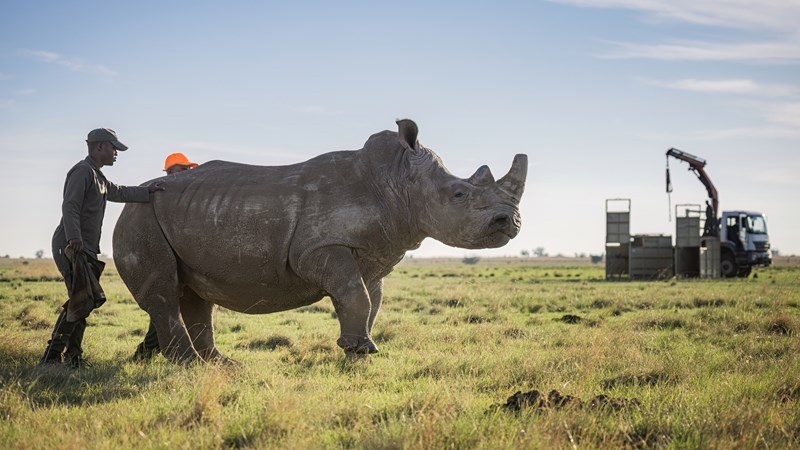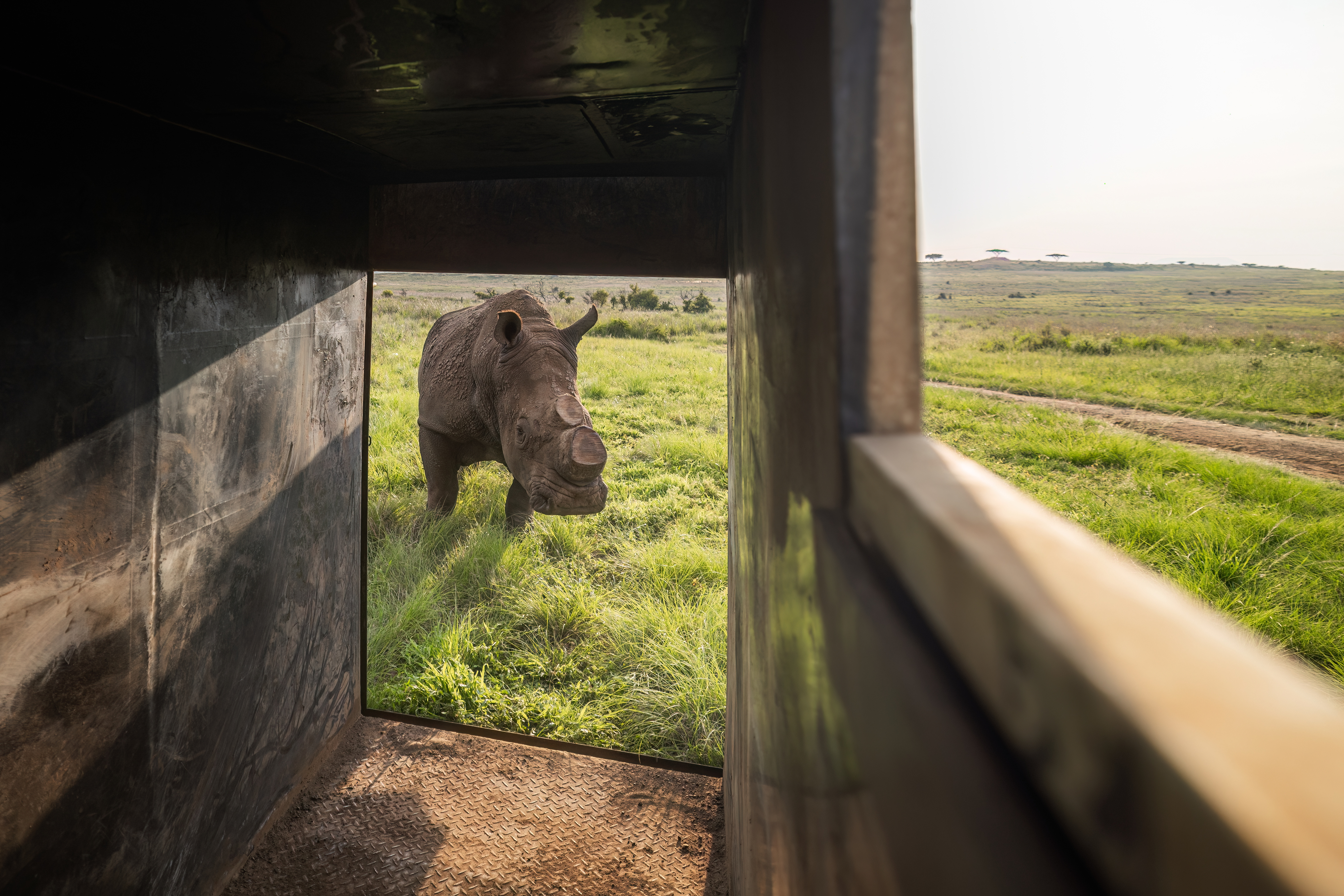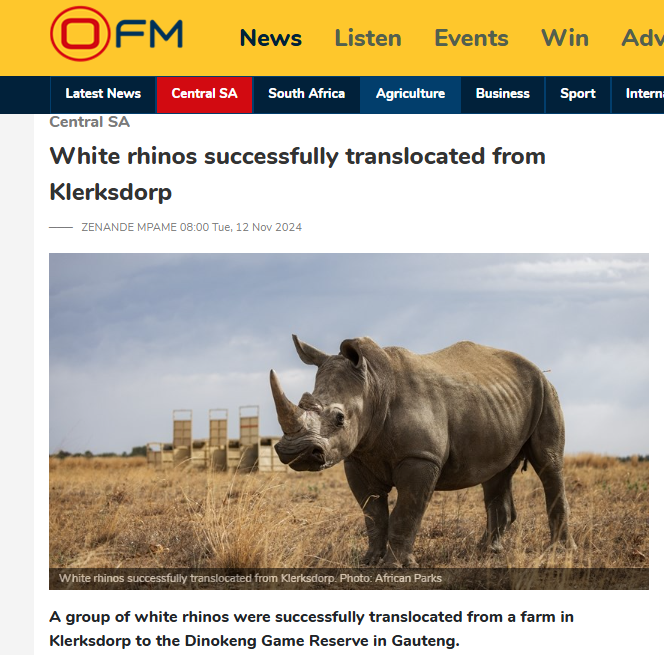South Africa
Latest translocation of rhinos to KZN a success─── ZENANDE MPAME 13:10 Thu, 19 Dec 2024

A group of white rhinos have been successfully translocated to a conservation area in KwaZulu-Natal.
It’s a continuation of the world’s largest rewilding effort started by African Parks to translocate 2,000 southern white rhinos to secure protected areas across Africa.
Nongovernmental organisation (NGO) African Parks manages 22 protected areas in 12 countries covering over 20 million ha in Angola, Benin, Central African Republic, Chad, the Democratic Republic of Congo, Malawi, Mozambique, Rwanda, South Sudan, Zambia, and Zimbabwe.
“Since this is the last translocation for the year we’ve learned that there is always an element of risk when you are moving any animal,” WeWild Africa Managing Director Dereck Milburn.
“I guess it’s also about the logistics around it, so when we first started moving the rhinos we would move a lot less rhinos a day but now we can move a lot more per day.
“The process is more efficient, and the team is learning a lot more about the drug combinations for the large number of animals we are transporting,” he said.
OFM News previously reported in November a third rhino translocation was carried out when a group of white rhinos were successfully translocated from a farm in Klerksdorp to the Dinokeng Game Reserve in Gauteng.
When asked about dehorning the rhinos before they are moved Milburn said, “Dehorning rhinos is never a nice thing to do but it is a necessary evil in some way and it is one of the most effective ways to reduce the risk or reward for poachers.”
“We are proud to be receiving a number of white rhinos from African Parks adding to the ones we already have,” said the chairman of the receiving reserve. “We are sure they will enjoy making our beautiful and diverse game reserve their new home.”
“Dehorning is a safe technique to do and the horns do grow back over time but basically, you are just making it a lot less attractive for poachers to come into a reserve to poach them.”

A southern white rhino is being loaded on crates to be able to be translocated. Photo: WeWild Africa
On average rhinos are dehorned every two years, and they are only dehorned once the horns have grown to a point where it will be a reward for poachers. Dehorning should only be a short-term solution to stabilize a scenario where there is a lot of poaching, said Milburn.















